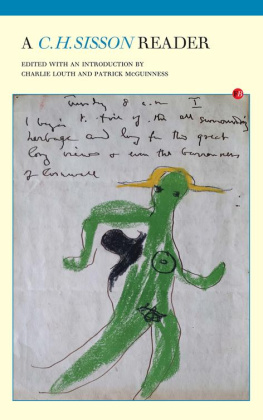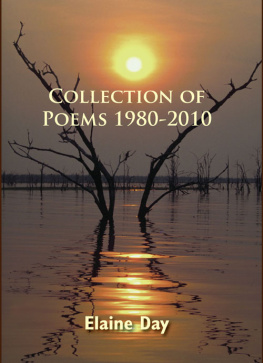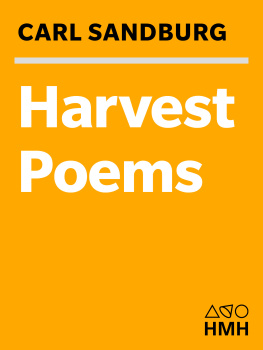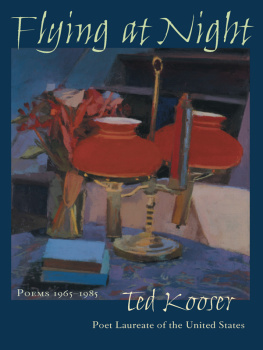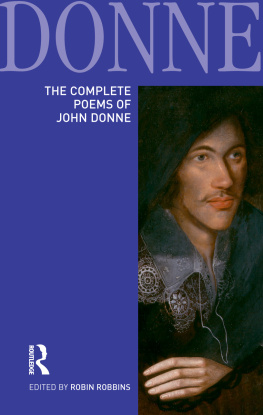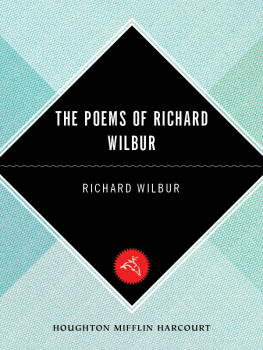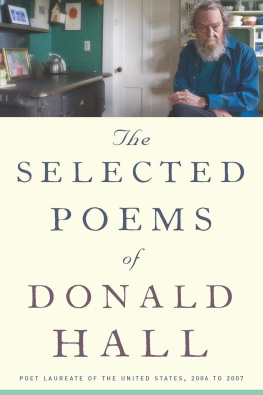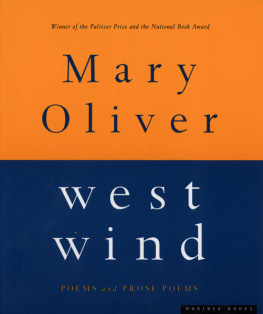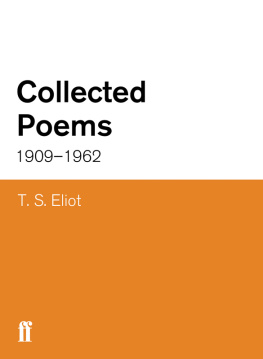FyfieldBooks aim to make available some of the great classics of British and European literature in clear, affordable formats, and to restore often neglected writers to their place in literary tradition.
FyfieldBooks take their name from the Fyfield elm in Matthew Arnolds Scholar Gypsy and Thyrsis. The tree stood not far from the village where the series was originally devised in 1971.
For about a year (circa 1932) I must have been contemporary, wrote C.H. Sisson in his autobiographical essay, Natural History: How I got over this is mysterious, but it was not all done by literature. The essay, which falls into the making of a writer genre, has a characteristic Sissonian emphasis on the writers unmaking, which is usually also his real making. If we wanted a brief insight into Sisson the poet, thinker and cultural critic, we could do worse than start here. In an essay on Pounds Pisan Cantos, Sisson recalls being drawn to Hugh Selwyn Mauberley, a poem he encounters first in piecemeal, quoted form while still living with his parents. For three years, out of key with his time, it begins. The power of that line, and something one suspects Sisson responded to, lies in the enticing perfection of its rhythm even as it speaks of something, of someone, out of rhythm with his time. There is also the possibility, the probability even, that there is no better sign of being of ones time than advertising ones estrangement from it. Certainly that modernist passion for locating oneself on either side of the present, and, if possible (Pound, Eliot), on both sides at once, is something Sisson understands and stays attuned to throughout his long career. In Two Minds is the title of one of his books of literary criticism, and in a review of a book on the Leavises he jokes that two minds is surely the minimum number for any reflection of any interest. It is a witty, penetrating comment, and one that goes to the heart of Sissons own work, which is authoritative but never comfortable, articulate but always suspicious of articulacy.
Sisson began as a mostly urban poet:
I was born in Bristol, and it is possible
To live harshly in that city
Quiet voices possess it, but the boy
Torn from the womb, cowers
Under a ceiling of cloud. Tramcars
Crash by or enter the mind
A barred room bore him, the backyard
Smooth as a snake-skin, yielded nothing
In the fringes of the town parsley and honey-suckle
Drenched the hedges.
(Family Fortunes I)
There are quiet voices there, but they are drowned out by the crash of tramcars, and the smooth surface of the yard stifles the life of the land beneath that only emerges elsewhere, an erotic drenching that does not touch the centre. Sissons direct experience of modern bureaucracy, as a civil servant in the Ministry of Labour, prepared also by an early reading of Kafka while in Berlin in 193435, sharpened his sense of humans as trapped animals estranged from their instinctual life by a system of regulatory structures. But at the same time, he had a clear idea of how the history of those structures had for better or worse shaped us into what we are. A person becomes, not what he thinks he is, but what he is, or at any rate what is, he writes in Le roi soleil. Becoming what you are consists for Sisson not in inhabiting the interstices, which might be thought to be one way of enjoying some freedom from the control of the state (or the states failure to limit the profit motive), but, as he spells it out in the 1939 essay Order and Anarchy and also thirty years later in an editorial for PN Review to understand government and our inherited institutions (Avoidance, p. 555). This leads him to align himself with cultural and political order, and yet, because his version of that order, rooted in the seventeenth century, was so against the times, and the reality he saw such a counter-reality, his work is always radical and oppositional, critical and sceptical, an irritant. Good writing alone may be described as independent of government, he says in Order and Anarchy alone, that is, in contradistinction to bad writing and part of what makes his writing good is its independence not just from government but from literary fashion and consensus, its unwillingness to swallow the orthodoxies of the day.
Being in or of ones time matters little to Sisson, if by that is meant being fashionable, or courting an existing readership, or being part of a group or generation with an identifiable collective ethos. Yet ideas of continuity and community are central to his work. An English poet first and foremost, he is also one of English poetrys most European-minded, and his sense of a specifically English (as distinct from British) cultural inheritance is matched by his understanding of the European traditions it partakes of and diverges from. The translator of Virgil, Catullus, Lucretius, Dante, Du Bellay, Racine, La Fontaine in bulk, he also assayed a range of writers including, among others, Ovid, Horace, Petrarch, Lab, Gryphius, Boileau, Heine, Corbire and Valry. Fishing in other mens waters, he called translation, though as a poet, and despite his self-avowed short spell as contemporary, he fishes almost entirely in his own.
There must have been a time when Sisson was young, and perhaps that was when he was contemporary too. But late style came early to him. We are struck, as we read him, by how weathered and disabused Sissons writing can be, how ambiguously freighted it is by the past, by history, and by a sense of community that often constrains as much as it enhances us. His preoccupations with the relations between Church and State, literature and national life, his special understanding of conservatism, which is civic and pragmatic as well as something more numinous, are hardly fashionable. His writings on administration and governance are so far from the sort of cultural interventions we are used to seeing from poets that it would be tempting to set them apart from the body of his properly literary work (the term properly literary is one Sisson would have rejected). But they are not; they are part of it, part of its informing vision.
Even when Sissons conservatism might have been fashionable, it was rendered inaudible by noisier simplifications notably the amnesiac, historically illiterate conservatism of the 1970s and 1980s, and the softly sentimental attachments to tradition and history that accompanied it, often as ways of distracting from its ravages. Where the easier forms of conservatism look to history and tradition for comfort, Sisson tends to look to them for something harder and more testing. In this he resembles another poet-critic, Donald Davie, and both writers, despite differences, were conscious of their common ground: an attraction to modernism (notably Pound) that often seemed at odds with a specifically British literary and cultural inheritance. And the word inheritance seems more apposite than mere tradition, because one cannot choose ones inheritance, though traditions can always be managed in ways that suit us. In this respect, Sisson is perhaps the true heir of T.E. Hulme, a poet and thinker about whom he writes perceptively and with sympathy. Those Hulmean ideas he responds to a belief in order and continuity, support for democracy that understands its imperfections, a sense of what Hulme called the religious attitude that is independent of a belief in God and by no means implies it are the least glamorous attachments a writer can admit to. After all, they are forms of self-denial, retreats from the grandiloquent statement or the vertiginous insight. But they are what Sisson values and what he stands by. Sisson, who was a witness to German developments before the war, who admired the French nationalist Charles Maurras, and who saw through Pounds attraction to fascism and Yeatss Celtic essentialism, resists, in his own work, exactly that tendency certain writers have poets especially to become drawn into politics of the extreme. The gesture of his entire work is against this, and against, too, the temptations of the very poets he most values. Maurras founded his politics on his esthetics, and that is a lunacy, he writes. That ability to divorce politics from aesthetics while registering the temptation to conflate them, is what makes his lifelong engagement with Maurras so revealing of Sissons own mind.

